Psilocybin mushrooms are making a comeback after decades of being demonized. Magic mushrooms were banned in the 70s, despite having important medicinal qualities. Today scientists from leading institutions are acknowledging that under medical supervision and in small amounts, psilocybin mushrooms have the potential to treat serious psychological disorders.
The history of psilocybin mushrooms
Some historians believe that psilocybin mushrooms may have been used as far back as 9000 B.C. in North African indigenous cultures. Evidenced by representations in rock paintings. Statues and other representatives of what appear to be mushrooms have also been found in Mayan and Aztec ruins in Central America. The Aztecs used a substance called teonanácatl, which means “flesh of the gods,” that could refer to magic mushrooms. Along with peyote, morning glory seeds, and other naturally occurring psychotropics, the mushrooms were used to induce a trance, produce visions, and communicate with the gods. When Spanish Catholic missionary priests came to the New World in the 16th century, they wrote about the use of these psychotropic substances.
There is further confirmed use among several contemporary tribes of indigenous peoples in Central America, including the Mazatec, Mixtec, Nauhua, and Zapatec.
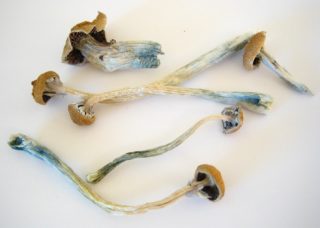
Magic Mushrooms and the West
As mentioned, humans have consumed psilocybin, the naturally occurring psychedelic compound found in magic mushrooms, for more than 10,000 years. By the mid 20th century, the context was religious and for healing purposes. That all changed on June 29, 1955, when a banker at J.P. Morgan named R. Gordon Wasson traveled to Mexico with a photographer to the mud hut of the Mazatec curandera (medicine woman) called María Sabina. She shared a magic mushroom preparation that her tribe had been taking for thousands of years. Wesson and his photographer became “first white men in recorded history to eat the divine mushrooms.”
A true story
The banker went on to share his experiences in a LIFE magazine in 1957, in an article titled “Seeking the Magic Mushroom,”
Leading French botanist Roger Heim read about Wasson’s experience. Known for his studies describing the anatomy of mushroom hymenium, Heim enlisted the help of Albert Hofmann (the “father” of LSD), who isolated and extracted psilocybin and psilocin from some mushrooms Wasson brought back. [Source: Harvard University].
More scientists experimented
Timothy Leary, perhaps the most famous proponent of psychotropic drugs such as LSD, also read the LIFE article and was intrigued.
From 1960 already Timothy Leary and Richard Alpert, two promising young psychologists at Harvard University had started to investigate the effects of psychotropic substances on the human mind.
Psychology, they argued, had a legitimate interest in how cognition, perception, and emotion are affected by mind-altering substances. At the time, the possible dangers of researching such substances were not as well known as they were in subsequent decades.

Brain body experiments
Leary began experimenting with psilocybin mushrooms at Harvard University. From there, magic mushrooms became inextricably tied to the hippie movement and its search for a new form of spirituality for the rest of the decade. [Source: Harvard University].
At the time of Leary and Alpert’s research at Harvard, neither LSD nor psilocybin was illegal substances in the United States.
Harvard challenged
By 1962 various faculty members and administrators at Harvard were concerned about the safety of Leary and Alpert’s research subjects and critiqued the rigor of their unorthodox methodology. Leary and Alpert’s colleagues challenged the scientific merit of their research, as well as what has been described in reports as “the seemingly cavalier attitude with which it was carried out (e.g. poorly controlled conditions, non-random selection of subjects). Editorials printed by Harvard Crimson accused Alpert and Leary of not merely researching psychotropic drugs, but also actively promoting their recreational use.”
“I learned more about my brain and its possibilities and more about psychology in the five hours after taking these mushrooms than in the preceding 15 years of studying and doing research in psychology.” — Dr. Timothy Leary
Harvard psilocybin project
Leary and Alpert insisted on the scientific purpose of their endeavors and agreed to policies intended to protect their subjects. This included a prohibition on participation by undergraduate students. Initially, Leary and Alpert only used volunteer (if not fully informed) graduate students in their research.
Leary and Alpert developed pioneering concepts in psychedelic therapy such as set and setting. They tested whether ingesting psilocybin could reduce recidivism in prison inmates (in the Concord Prison Experiment) and catalyze religious experiences in divinity students (in the Marsh Chapel Good Friday Experiment). The results were ringing endorsements of psilocybin’s mystical and therapeutic potential. However, the experiments were later discredited due to unsound methodology. Also for omitting details related to the intense anxiety experienced by many of the participants. However, in the spring of 1963 Harvard was forced to dismiss Alpert after he administered psilocybin to an undergraduate student off-campus. Leary was also fired from the university. The Harvard Psilocybin Project came to an abrupt end.
Ruining ancient tradition
Discredited by their lack of scientific rigor and failure to observe established research guidelines, Timothy Leary and Richard Alpert were both banished from academia.
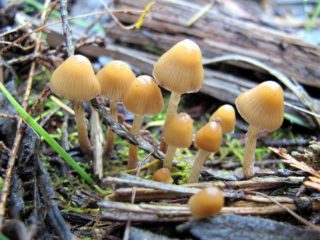
This did not end their public lives: both men went on to become icons of the psychedelic drug, counterculture, and human potential movement. Indeed, Leary became famous for the slogan “Tune in, Turn On, Drop Out”: Alpert, Alpert traveled to India, and according to articles written in the day “came back bearded, wearing a dhoti, and calling himself Ram Dass. By 1966, psilocybin and LSD were illegal in the United States. Under the name Baba Ram Dass, Alpert wrote a popular book called Be Here Now, described as a “modern spiritual classic.”
Banning of psilocybin mushrooms
Unknowingly, when all was said and done Wesson had opened a Pandora’s Box that would see, among other things, the birth of the American psychedelic counterculture, but also the defilement of the ancient mushroom ritual. In the end, psilocybin mushrooms were banned across much of the world.
According to a story published Timeline, by Ahmed Kabil; “The article in LIFE and subsequent attention also led to Sabina’s ruin, as Westerners came to her by the hundreds. The publicity was disastrous for the Mazatec community, who blamed Sabina for bringing misfortune to the village and defiling the velada ritual. Sabina’s house was burned down, and federales frequently raided her home. He was accused of selling drugs to foreigners. Hippies rented cabins in neighboring villages and on some bad trips and went raving naked through town.”
“I realized the young people with long hair didn’t need me to eat the little things. Kids ate them anywhere and anytime, and they didn’t respect our customs.”
— María Sabina
The war on drugs
It was inevitable that the misuse of a sacred tradition would result in a widespread ban. After 1970, as the US led a ‘war on drugs’, LSD, psilocybin, and mescaline were designated ‘Schedule 1’ substances in the UN Conventions on Drugs. This meant they could not be prescribed by medical doctors outside of an authorized research study.
Mexican authorities also banned the use of psilocybin mushrooms.
Funding for such studies dried up in the wake of hardening socio-political attitudes towards psychoactive substances. Clinical research in psychiatry came to a standstill without a clear view about whether the drugs were safe and effective when compared to placebo or other treatments.
This is how psilocybin mushrooms became demonized over three decades. Until recently.
A rethink of the benefits of psilocybin mushrooms
Forty years later, there has been a rethink about the health benefits of these mushrooms. While this may be slow, there appears to be a steady resurgence of clinical research interest into psilocybin.
Indeed, in October 2018, the Food & Drug Administration granted Compass Pathways permission to research mushrooms as a treatment for depression. Researchers plan to combine intense therapy with psilocybin. They hope to find better ways to combat treatment-resistant depression, which they say affects about 100 million people worldwide.
Johns Hopkins weighs in
In September 2019, Johns Hopkins University unveiled its Center for Psychedelic and Consciousness Research. Scientists at Johns Hopkins plan to evaluate psilocybin as a possible treatment for everything. From opioid addiction, Lyme disease, post-traumatic stress disorder, nicotine and alcohol dependency, and many other ailments.
There are growing numbers of studies supporting their claims. All of them seek to unlock the way magic mushrooms and their compounds interact with our brains and bodies. Perhaps their work will unlock the doors of perception in our minds in ways we can’t yet even begin to imagine.
More studies support the medical benefits of psilocybin
It may well be that the once outlawed, magic mushrooms may now be used in a manner much closer to what María Sabina considered to be their true purpose: to heal the sick. Today, magical fungi are finding broader acceptance in popular culture. Some people have taken up what’s called “microdosing” with psilocybin mushrooms. Consuming tiny amounts of the chemical. They don’t experience full-blown trips. Instead, they feel a boost in mood and creativity that lowers their anxiety and makes them more productive.
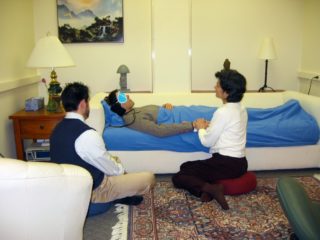
Can psilocybin mushrooms help people who are stuck?
Psychedelics could help some people who are ’stuck’ in the process of therapy. Psilocybin mushrooms delivered within a medically controlled environment with a trusted therapist could be very helpful and lower any risk of serious adverse events.
Researchers caution that psychedelics are most likely not safe for people with psychotic disorders such as schizophrenia. Or for people who were predisposed to developing these conditions.
How psilocybin mushrooms work
According to the researchers at Kings College, psilocybin mushrooms work on the serotonin system, ‘relaxing’ the brain mechanisms that mediate thought and behavior. As this happens, old patterns ‘dissolve’ and a therapeutic ‘window of opportunity’ is introduced. Patients receiving psilocybin describe it as like a ‘waking dream’, with new insights and understanding emerging about why they are suffering.
King’s College in London is also in the process of determining if and how these mushrooms could be used as a legitimate treatment for depression.
After treatment, therapists would then work with patients to help them solidify more helpful perspectives on their difficulties. This would include a plan of what they are going to do on an ongoing basis to change their lives for the better.
Findings are hopeful
The findings to date are hopeful. Some patients are reporting enduring, positive benefits from only a single treatment dose of psilocybin. And with no ongoing need for daily medication.
Experiences under psilocybin are not dangerous but can be psychologically challenging because strong emotions or memories may arise. This affirms the need for a safe environment and a trusting relationship with an experienced therapist.
Importantly, researchers who are testing the efficacy of this substance will only give people psilocybin mushrooms in a dedicated hospital facility. Along with full support from doctors, nurses, and psychotherapists. They will never give people psilocybin to take home. Also, the psilocybin used in trials is not derived from pure mushrooms. It’s manufactured to the same standard as any medicine prescribed by your doctor.
The science also suggests that this therapy may not work for everyone.
Cancer patients on treatment
Other scientists interested in mushrooms include Dr. Stephen Ross, associate professor of psychiatry in the Department of Psychiatry at NYU Langone Health. He told CNN their studies had also delivered promising results.
“A single dose of psilocybin, a compound found in “magic mushrooms,” provides long-term relief from anxiety and depression in cancer patients.” Dr. Ross confirmed.
“In fact, cancer patients who were given psilocybin reported reductions in anxiety, depression, hopelessness, demoralization, and death anxiety more than four years after receiving the dose in combination with psychotherapy.
Our findings strongly suggest that psilocybin therapy is a promising means of improving the emotional, psychological, and spiritual well-being of patients with life-threatening cancer.”
Anxiety, depression and psilocybin mushrooms
The findings build on improvements first reported by the team already back in 2016, before the Compass grant. Then 29 patients with cancer-related anxiety and depression were given either a single dose of psilocybin or a vitamin placebo called niacin.
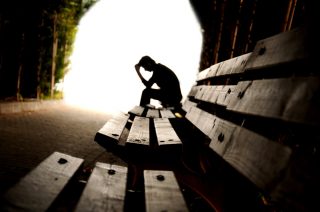 Seven weeks later, they were given the opposite. This was in combination with nine psychotherapy sessions.
Seven weeks later, they were given the opposite. This was in combination with nine psychotherapy sessions.
By 6½ months, after all, patients had received psilocybin, about 60% to 80% showed clinically significant reductions in depression, anxiety, and existential distress and improved attitudes toward death.
Long-term improvement
Fifteen of the original participants were then followed up between 3.2 and 4.5 years later to show sustained long-term improvements. More than 70% of them attributed “positive life changes” to the therapy experience, rating it among “the most personally meaningful and spiritually significant experiences of their lives.
“This approach has the potential to produce a paradigm shift in the psychological and existential care of patients with cancer, especially those with a terminal illness,” Ross said in a statement.
Can psilocybin mushrooms lift a “cloud of doom” for cancer patients?
Ross believes an alternative means of treating anxiety and depression among cancer patients is urgently needed, stating that a third of people diagnosed with cancer will develop anxiety, depression and other forms of distress.
Though his team does not fully understand how psilocybin mushrooms have such effects on the mind, they previously suggested it could be because our brains have a level of neuroplasticity. This means they have the ability to adapt and change with various experiences.
A meaningful experience
“These results may shed light on how the positive effects of a single dose of psilocybin mushrooms persist for so long,” said Gabby Agin-Liebes, lead investigator and lead author of the long-term follow-up study and co-author of that original 2016 parent study. “The drug seems to facilitate a deep, meaningful experience that stays with a person and can fundamentally change his or her mindset and outlook.”
The findings do, however, build on growing evidence supporting the benefits of psilocybin mushrooms when it comes to mental health.
More institutions are conducting studies
Indeed, multiple studies to date have found benefits in using psilocybin mushrooms to treat people with depression when combined with supportive therapy.
A study published in the journal Proceedings of the National Academy of Sciences confirmed people who had recently used psychedelics such as psilocybin reported a sustained improvement in mood and feeling closer to others after the high had worn off.
The results of a field study of more than 1,200 people attending multi-day arts and music festivals in the United States and the United Kingdom confirm previous laboratory research indicating that psychedelic substances enhance feelings of social connectedness and improve mental well-being, the authors say.
“Our results show that people who take psychedelics ‘in the wild’ report positive experiences very similar to those observed in controlled laboratory studies,” said Yale’s Matthias Forstmann, postdoctoral fellow and first author of the paper.
Transformative experience with psilocybin mushrooms
Senior author and assistant professor of psychology Molly Crockett and her team visited half a dozen festivals. They asked attendees who were not then under the influence of psychedelics about their recent social experiences, mood, and substance use. By surveying them, the researchers were able to characterize the psychological effects of the “afterglow” of psychedelic experiences.
The team found that people who recently took psychedelics such as LSD and psilocybin, more commonly known as magic mushrooms, were more likely to report having “transformative experiences.” They were so profound that they came out of the experience radically changed, including changes to their moral values.

A mood enhancer
Transformative experiences, in turn, were associated with feelings of social connectedness and positive mood. The most pronounced effects were reported by psychedelic users who had taken the drugs within the past 24 hours.
People who abstained from substance use, drank alcohol or took other drugs such as cocaine or opioids did not report transformative experiences, increased connectedness with others or a positive mood to the same degree, the study showed.
Not to be confused with other drug use
Crockett cautioned that the study was not designed to assess negative reactions, which have been reported with recreational drug use.
Further studies are necessary to learn which environmental factors are associated with positive versus negative psychedelic experiences, she said. But the findings add to a body of evidence suggesting psychedelic substances may have potential as a therapy for mood disorders.
“We are encouraged that our study is consistent with previous laboratory findings showing mood benefits of psychedelics in healthy people and in patients suffering from anxiety and depression,” she said.
Five years of therapy in five hours
Subjects who undergo other clinical trials say they feel like they have undergone five years of therapy in five hours. Others attest to life-changing experiences. We can believe this statement because there’s scientific research to prove it.
Researchers at Princeton University also found that people who recently took psychedelics like LSD and psilocybin, or ‘magic mushrooms’, were more likely to report having ‘transformative experiences.’ Apparently, these experiences were so profound that they came out of the experience radically changed, including changes to their moral values. Transformative experiences are associated with feelings of social connectedness and positive mood. Subjects stated that they experienced the effects within the first 24 hours.
Helps change the information in our brain
In other studies, psychedelics like psilocybin mushrooms were to be shown to help change how information moves through our brains. Also, this Zamnesia article suggests that forming new stable neural connections is possible with the use of magic mushrooms. This is groundbreaking because depression and anxiety are only getting worse. They’re such common conditions amongst mental health diagnoses. That’s why we need more medicinal studies to determine if we can use psychedelic drugs as a potential treatment option.
Depression is on the rise
Depression isn’t going anywhere. In fact, it’s getting worse and our anti-depressants are not even close to perfect. We need something else to bridge the gap. If you are able to legitimately access psilocybin mushrooms, it could offer benefits that current depression treatments do not. Mental health experts are working hard to find alternatives to anti-depressants. In essence, we haven’t moved much since the 1950s when it came to treating depression.
Current antidepressants have barely changed since the 1980s. Sadly, these antidepressants can only reduce symptoms for most people by the two-month mark. However, if you’re somebody who’s dealing with suicidal thoughts then this isn’t ideal, more immediate treatment is needed. Scientists state that the risks of psilocybin are low, but only if they are conducted under medical observation and support.
Bottom line. Safety first
This article outlines the use of psilocybin mushrooms for strictly medical reasons. It’s important that this substance is not abused. Be mindful of taking a kind of psychedelic mushroom and bear in mind that they’re not for everyone. Importantly, classical psychedelics are not considered safe for people with psychotic disorders such as schizophrenia, or even for people who were predisposed to developing these conditions.
There are many myths about magic mushrooms. Some people believe, for example, that magic mushrooms are “safer” and produce a “milder” trip than other hallucinogenics. In fact, in addition to their potential to poison anyone who takes them, magic mushrooms are just as unpredictable in their effects as other drugs. Some people have reported much more intense and frightening hallucinations on magic mushrooms than on LSD.
Importantly researchers who are testing the efficacy of this substance will only give people psilocybin under medical supervision in a suitable facility with support from doctors, nurses and psychotherapists. Also, the psilocybin used in trials is not derived from pure mushrooms. It’s manufactured to the same standard as any medicine prescribed by your doctor.
Don’t get sucked in by celebrity endorsements
If you’re interested in this as a therapy you need to find a medically trained person to assist you. Where you live may determine availability and acceptable medical approach. Meanwhile, mushroom excursions like those espoused by the likes of celebrity Gwyneth Paltrow are gaining in popularity. While this may all seem cool, it’s not if you’re genuinely seeking a medical solution.
References
Harvard University: R. Gordon Wasson (1898-1986) Archives: http://botlib.huh.harvard.edu/libraries/wasson/BIOG.html
Tek-Gnostics Archives Intelligence Engineering Department. Dr Timonthy Leary Archives: https://www.tekgnostics.com/leary.htm
This Mexican medicine woman hipped America to magic mushrooms, with the help of a bank executive https://timeline.com/with-the-help-of-a-bank-executive-this-mexican-medicine-woman-hipped-america-to-magic-mushrooms-c41f866bbf37
Timothy Leary: Noted for: the effects of psychotropic drugs; the 1960s counterculture https://psychology.fas.harvard.edu/people/timothy-leary
One-Dose Of ‘Magic Mushroom’ Drug Reduces Anxiety And Depression In Cancer Patients, Study Says. CNN Health. https://edition.cnn.com/2020/01/28/health/magic-mushrooms-psilocybin-cancer-patients-study-wellness/index.html
PLOS ONE: A systematic study of microdosing psychedelics: Vince Polito and Richard J. Stevenson: https://journals.plos.org/plosone/article?id=10.1371/journal.pone.0211023
How LSD Works: By Shanna Freeman & Nathan Chandler https://science.howstuffworks.com/lsd.htm
Yale News. New research confirms lingering mood benefits of psychedelics https://news.yale.edu/2020/01/20/new-research-confirms-lingering-mood-benefit-psychedelics
‘Magic Mushrooms’ One Step Closer To Approval For Treating Depression. New York Post. https://nypost.com/2019/12/12/magic-mushrooms-one-step-closer-to-approval-for-treating-depression/
Magic Mushrooms As Medicine? Johns Hopkins Scientists Launch Center for Psychedelic Research. Say Psychedelics Could Treat Alzheimer’s, Depression And Addiction. Forbes. https://www.forbes.com/sites/robinseatonjefferson/2019/09/12/magic-mushrooms-as-medicine-johns-hopkins-scientists-launch-center-for-psychedelic-research-say-psychedelics-could-treat-alzheimers-depression-and-addiction/#7699d5b0c171
Hopkins Researchers Recommend Reclassifying Psilocybin, The Drug In ‘Magic’ Mushrooms, From Schedule I To Schedule IV. https://hub.jhu.edu/2018/09/26/psilocybin-scheduling-magic-mushrooms/
Kings College London Psilocybin Trials The Psychedelic Trials Group at the Centre for Affective Disorders is currently running randomised, controlled trials of psilocybin. The trials are being led by Dr James Rucker and Professor Allan Young.
https://www.kcl.ac.uk/ioppn/depts/pm/research/cfad/psilocybin-trials
Gwyneth Paltrow Sent Her Employees To Take Psychedelic Mushrooms In Jamaica. One Staffer Said She Felt Like She’d Undergone 5 years of therapy. Insider. https://www.insider.com/goop-staffers-went-on-a-psychedelic-mushroom-retreat-in-jamaica-2020-1
Expanding Psychedelic Medicine. MAPS. https://maps.org/
New Research Confirms Lingering Mood Benefits Of Psychedelics. Yale News. https://news.yale.edu/2020/01/20/new-research-confirms-lingering-mood-benefit-psychedelics
Transformative Experience And Social Connectedness Mediate The Mood-Enhancing Effects Of Psychedelic Use In Naturalistic Settings. PNAS.
Researchers believe magic mushrooms could have the potential to treat depression. Insider. https://www.insider.com/magic-mushrooms-depression-treatment-ssri-alternative-2019-2
Everything you need to know about micro-dosing. Insider. https://www.insider.com/what-is-microdosing-2019-1
A team of Johns Hopkins researchers is calling for magic mushrooms to be made legally available as medicine. Business Insider. https://www.businessinsider.com/johns-hopkins-researchers-magic-mushrooms-psilocybin-medicine-legal-schedule-5-2018-10?IR=T
Drug Scheduling. DEA. https://www.dea.gov/drug-scheduling
Journal of Psychopharmacology. Sage Journals. https://journals.sagepub.com/doi/full/10.1177/0269881116675512
Psilocybin for your personal wellbeing. Hopkins Medicine. https://www.hopkinsmedicine.org/Press_releases/2006/GriffithsPsilocybin.pdf
Why psychedelics like magic mushrooms appear to kill the ego and fundamentally transform the brain. Business Insider. https://www.businessinsider.com/psychedelics-depression-anxiety-alcoholism-mental-illness-2017-1?IR=T
Selective serotonin reuptake inhibitors (SSRIs). Mayo Clinic. https://www.mayoclinic.org/diseases-conditions/depression/in-depth/ssris/art-20044825
Depression: How effective are antidepressants? NCBI. https://www.ncbi.nlm.nih.gov/books/NBK361016/
More on staying healthy:
We’re reading increasingly about the potentially significant threat of toxins to our health, but what exactly are they? And how will they impact our longevity?


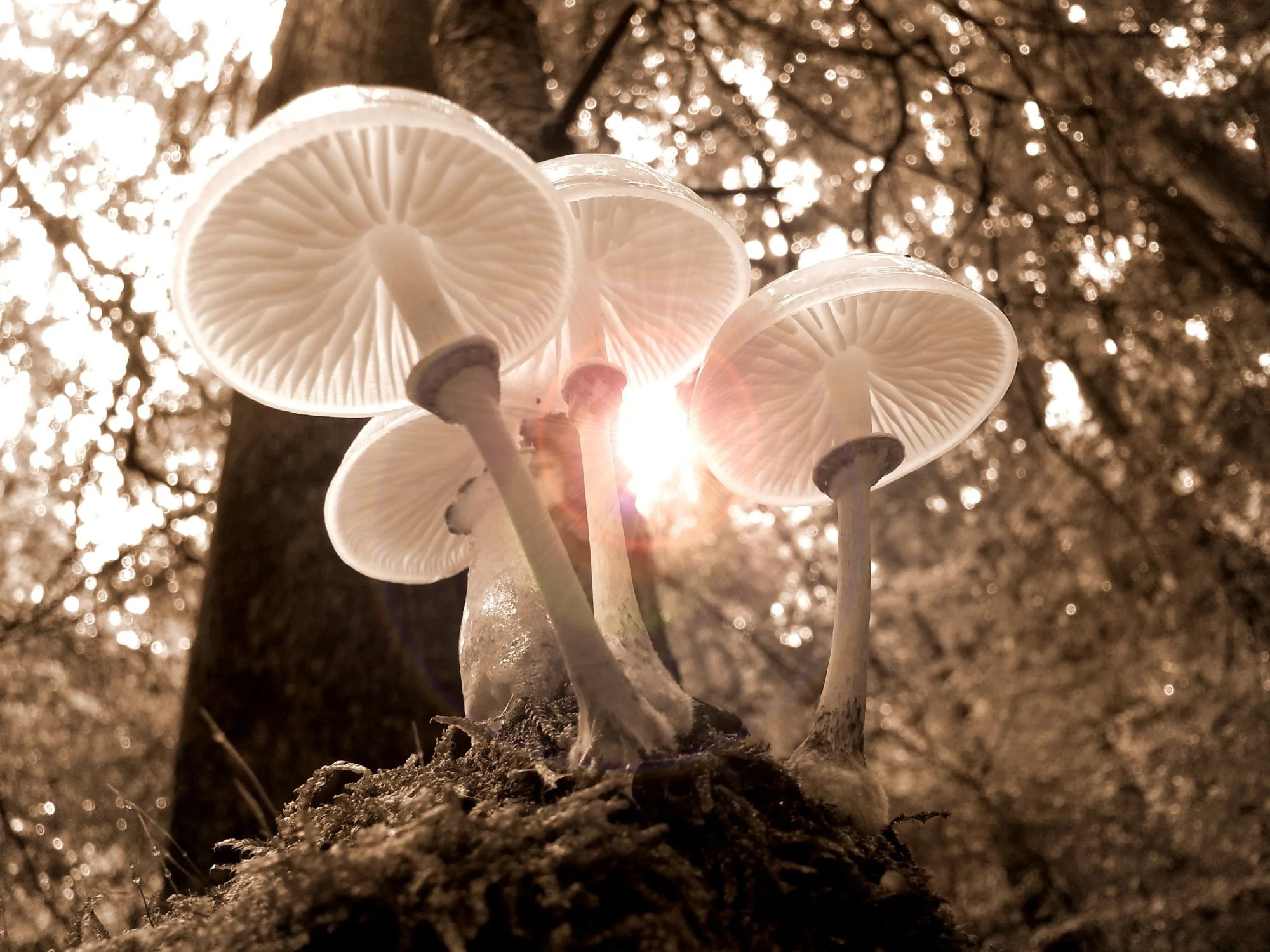
![women [longevity live]](https://longevitylive.com/wp-content/uploads/2020/01/photo-of-women-walking-down-the-street-1116984-100x100.jpg)











One Comment